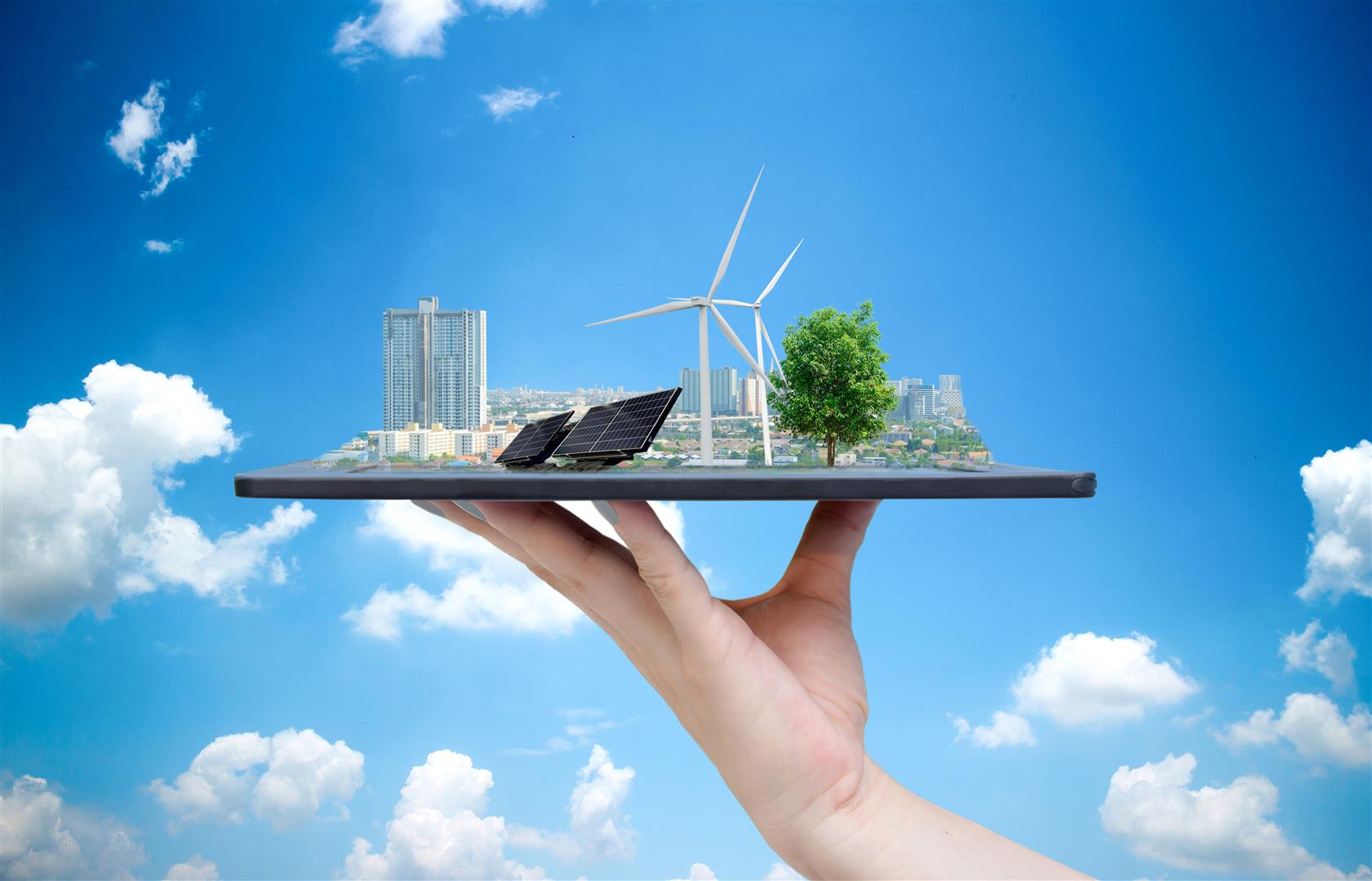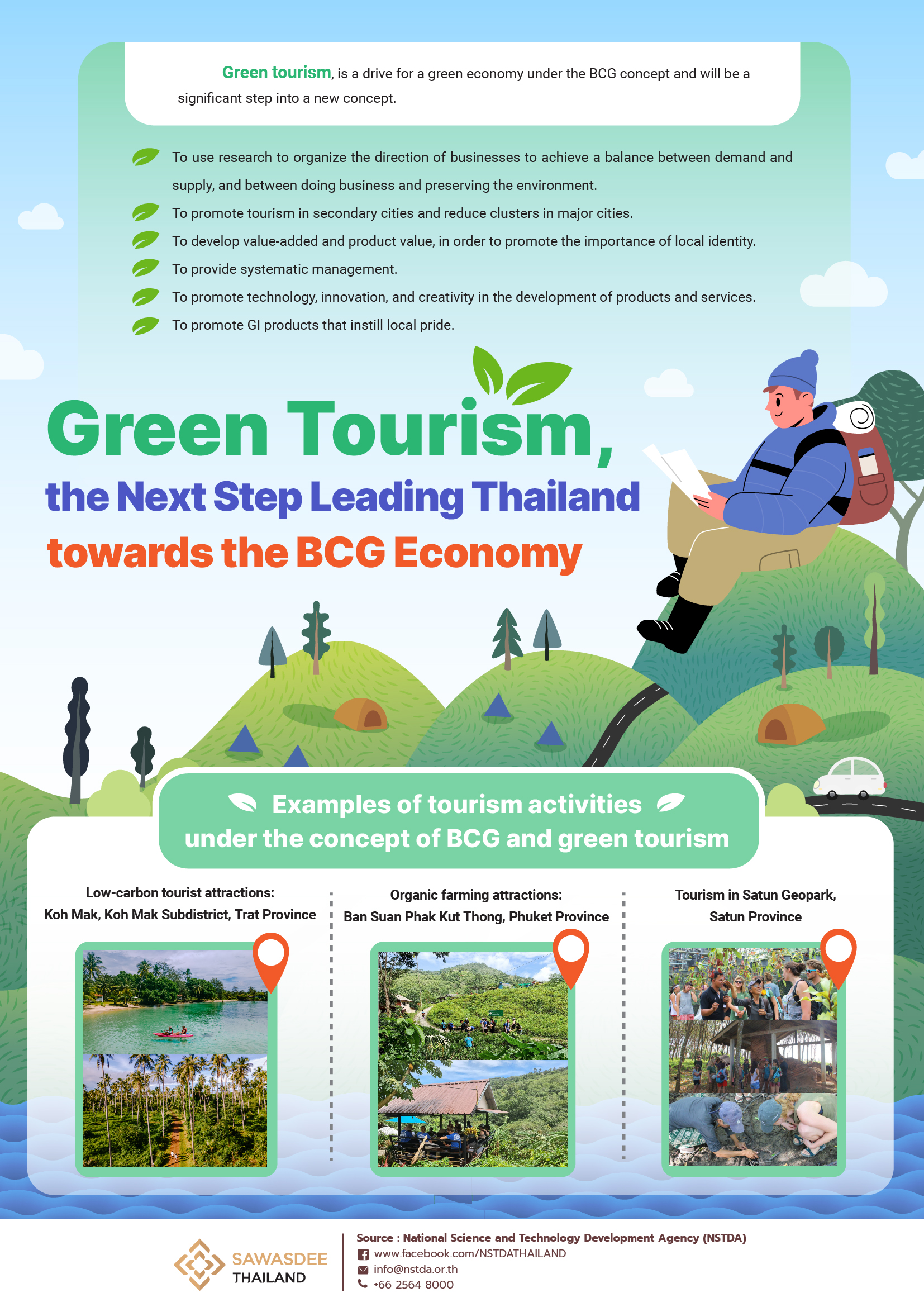
The tourism industry is an important sector for the country's economic growth, especially after the COVID-19 crisis, when tourism activities started to come back. However, even so, the capacity to accommodate tourists and manage their effect on natural resources is also a matter that must be taken into serious consideration. The Bio-Circular-Green (BCG) economic model, focusing on quality and sustainable tourism management, has been raised as a key model to drive national development by emphasizing the development of three parts simultaneously, namely Bio Economy, Circular Economy, and Green Economy.
Green tourism is a drive for the green economy under the BCG concept and will be a significant step into a new concept. It includes several aims:
To use research to organize the direction of businesses to achieve a balance between demand and supply, and between doing business and preserving the environment;
Examples of tourism activities under the concept of BCG and green tourism

Source : National Science and Technology Development Agency (NSTDA)
Tel : +66 2564 7000